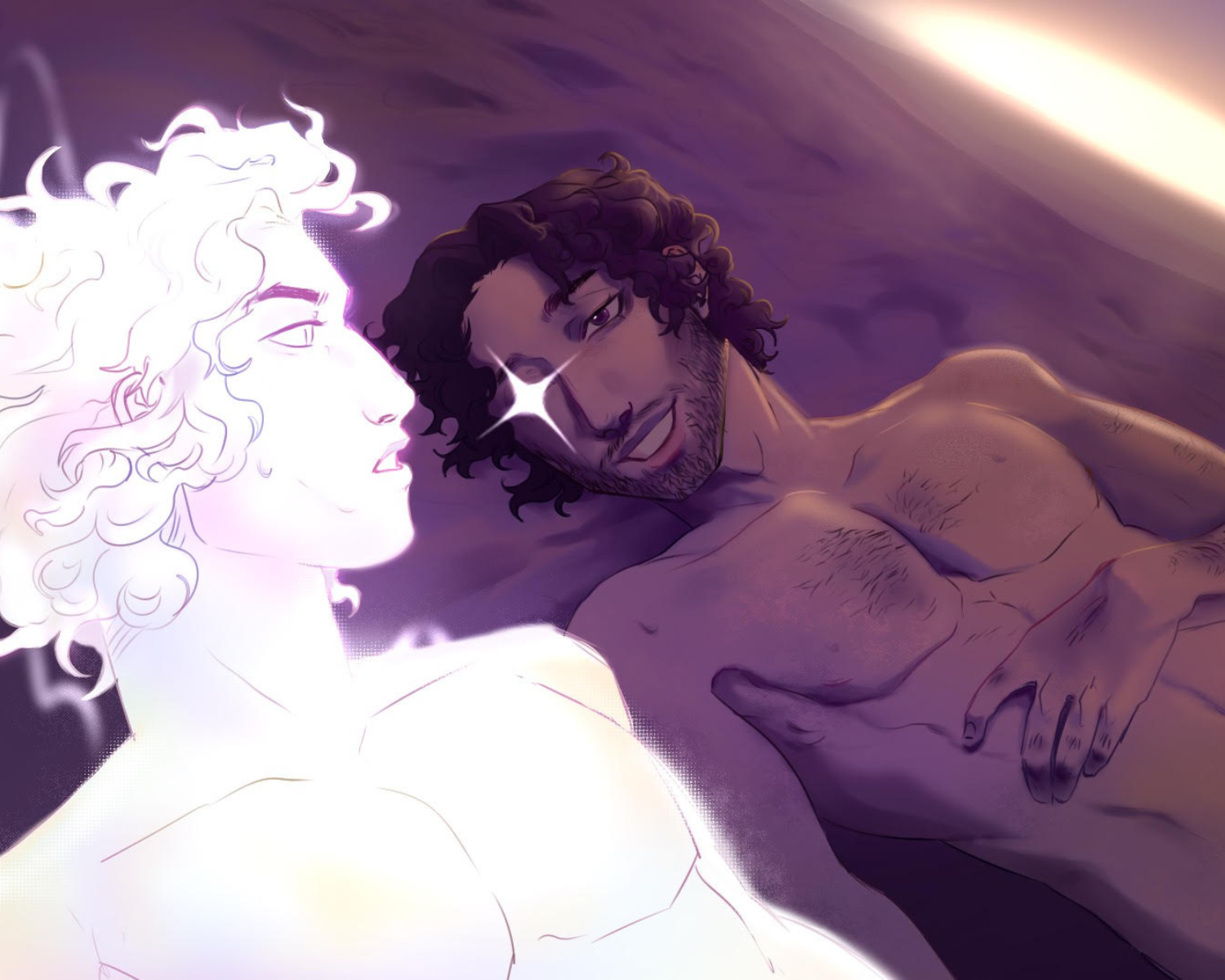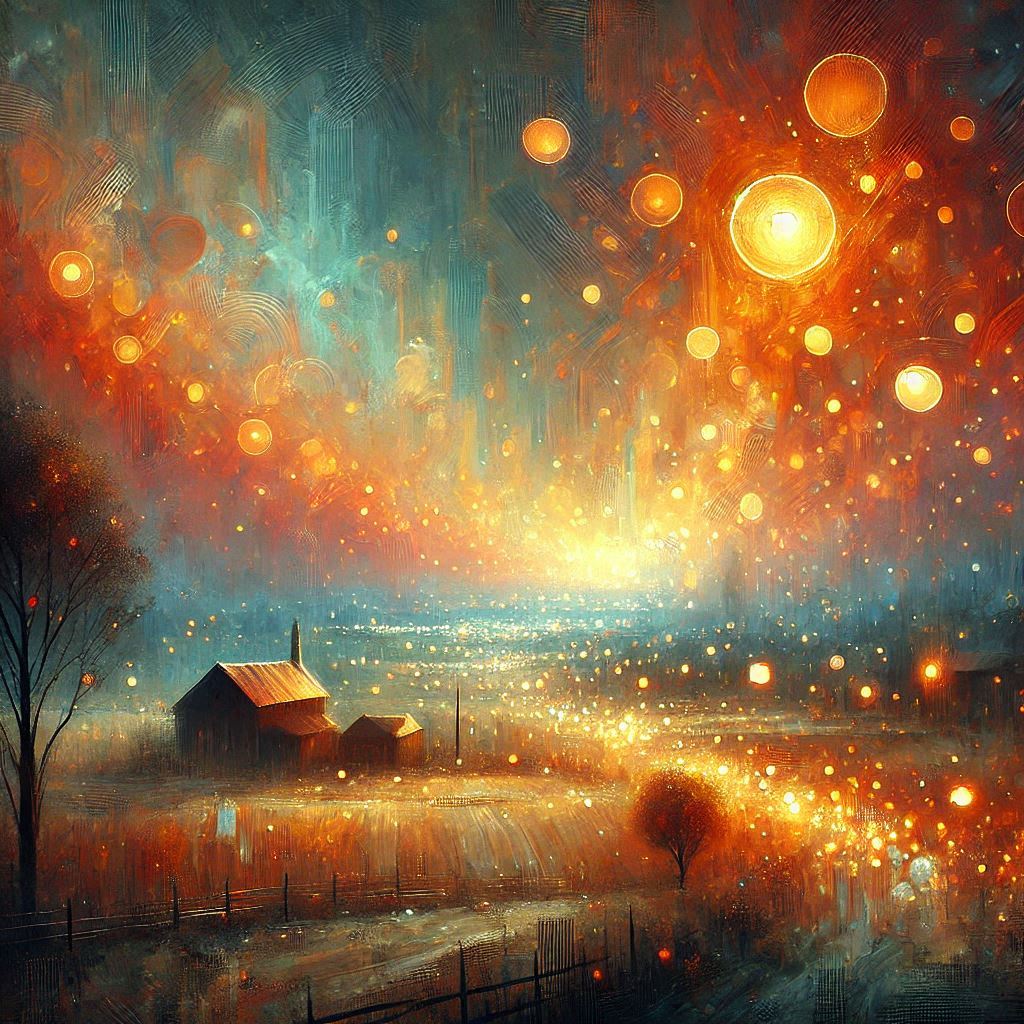
Momentary Amnesia
The striking Venezuelan lady elegantly sheathed in black and red silk called out in an alluringly smoky voice, “Best beach!”
“Elafonisi,” I said, without missing a beat. “Southwestern Crete.”
“Best flight.”
“Turkish Airlines to Istanbul. Lie flat business class, 5 course meal prepared by onboard Michelin chef.”
I had just retired from 40 years as a travel agent and my husband had arranged this celebratory soiree at a rooftop bar high above San Francisco. She had to raise her voice above the cocktail din to be heard. “OK,” she said, “Best meal.”
“Easy,” I answered, “The octopus carpaccio, fried artichokes, and spaghetti vongole at Il Conte de Monte Cristo ristorante in Rome’s Trastevere quarter. “
“You’re very specific, aren’t you?” she said, “OK, biggest culture shock.”
“Now, I’m not trying to be cute here because I’ve seen some disorienting cultures, but seriously, my answer is Miami, in a good way.”
We’d nearly finished our glasses of wine as she grilled me on my career. We’d attracted a small crowd drawn to our vociferous call and return, and they stood around like a studio audience during the lightning round on the TV game show Password.
“Best art.”
“A tie. Michelangelo’s David and Van Gogh’s Starry Night.”
“Most beautiful natural sight.”
“A vivid double rainbow over the stunning Na Pali coast on Kauai’s north shore, the setting for the fictional Bali Hai in the 1958 film South Pacific.”
“Gayest town.”
“Torremolinos, Costa Del Sol, Spain.”
“Most overrated.”
“At the risk of sounding like a philistine, Da Vinci’s Mona Lisa at the Louvre. I heard Peggy Lee in my head and thought, ‘Is that all there is?’”
The paced picked up.
“Friendliest country.”
“Ireland.”
“Best historical sight.”
“Pompeii.”
“Best purchase.”
“A buttery black leather motorcycle jacket in Florence.”
“Best tour.”
“Sunrise atop Maui’s Haleakala volcano, then biking 23 miles downhill.”
“OK, last one: best moment in your travel career.”
“Are you serious? A single moment?”
“The clock is ticking, Mr. Globetrotter.”
The number of countries I’ve visited is not nearly as extensive as other travel agents I’ve known. I could easily tally the total, but the number of actual moments seemed immeasurable to me, how could I possibly whittle that down? I looked at our empty wine glasses.
“Can you give me a minute?” I asked her. “Refill?”
She handed me her glass. “Stay there, I’ll be right back.” I found my way to the open bar and asked for a refill of our Malbecs. I adjusted my internal dial and set my memory to rewind, and my mind unspooled, reeling back through the decades.
Having long been a hopeless epicurean obsessed with food, once I became a travel agent and had access to the world’s cuisine, simply for the asking, bankrolled by free airline tickets and almost free hotels, I indulged with the fervor of an orgiastic sybarite. Many of my best travel memories are centered on food. There was a late summer evening on the island of Crete when, on the recommendation of a swarthy bartender I’d been flirting with in Heraklion, I went to a restaurant he’d told me was his favorite on the island. Although not located in town, and in fact taking some navigating to reach, his rapturous descriptions of it intrigued me, and so one night, after a sweltering afternoon spent walking throughout the vast Minoan ruins of the Palace at Knossos, I hired a taxi to drive me into the interior of the island to the address scrawled on the back of a pack of matches.
The drive took ¾ of an hour and meandered through herb fields and tiny villages, ancient monasteries, steep hills of impossibly twisted gnarled trees, herds of goats, old windmills, strange bleached white rock formations and meadows of vividly purple wildflowers. Greeks eat dinner late, like the rest of Europe, so when I arrived at 7pm I was the first person there. It was a country place, modest and charming, all stone with climbing ivy. The gregarious mustachioed owner, whom my bartender had spoken so highly of, actually embraced me when he learned I had come all the way from Heraklion just to patronize his taverna. He seated me on the outside terrace, brought me a carafe of wine that his family produced from grapes grown ”over there,” as he pointed to the plantation of vines just beyond the terrace stretching away towards the slowly darkening horizon.
And from that moment on, for the next four hours I felt as though I had been adopted into his family and awarded Greek citizenship as well. For years afterward, I could bring myself to tears just by thinking about that man and his extraordinary hospitality and generosity. I settled in, observing the sun now sinking fast behind the vineyards and olive trees, spent time with the menu as I tend to do, but eventually, on one of his sweeps past my table he took the menu away from me saying, “You no need this.” And indeed, I did not.
It started with olives. A tiny bowl of black, red, and green olives that were intensely flavored, flecked with aromatic herbs, and some toasted pita with fava bean dip. Then a classic Greek salad drenched in rich potent green olive oil. Next, a tiny cheese pie in filo, followed by sofegada, a mini pastitsio, and finally roast lamb and potatoes perfumed with black pepper and rosemary. The dishes I was served, the ingredients of which all grew mere yards away, were all bite-sized and I never felt overwhelmed. I watched the dining room fill up, and I watched it empty. There were two waitresses, one of whom was the owner’s wife, but it was the owner, his name was Christos, who attended to me, and brought me most of the plates. Occasionally he would sit with me to ask of the food, or of my travels in Greece, making small talk in his broken halting English. I know this sounds overwrought, but I felt deeply bonded with him, tethered together in some mysteriously emotional, transcendental way.
By night’s end, with only a glass of ouzo in front of me, and my host for company, the night air still warm, I watched the moon rise over the vineyards. Was it the ouzo talking or were those really fireflies ornamenting the black sky, like illuminated fairy dust, just above the yellow lanterns that dotted the terrace? When it was time to leave, he called a taxi and he and his wife walked me to the road and waved goodbye. I thought, are they for real? Is anyone really this sincere? They stood with their arms lightly around each other, waving a fond farewell with their free hand. So there’s my moment. Peering back through the rear window of that taxi at that smiling waving couple as they bid me “avrío.” The evening itself meandered leisurely across a few indulgent hours. But sometimes a moment’s meaning is significant for what has preceded it.
But the señora at my cocktail party had asked for my best moment. Was that truly it? My mind suddenly seized on another moment from the jumble of postcards in my head. In the early 80’s I was on the inaugural United Airlines flight from the west coast to Japan. We flew a big jumbo jet non-stop from Seattle to Tokyo, and although I was part of a group of seventeen travel agents, we were virtually alone on the flight; the rest of the plane had no passengers. I remember lifting the arm rests on a middle row of five seats and sleeping most of the way in maximum peace and business class comfort. After checking into the futuristic Akasaka Prince hotel, I took a quick shower and headed out to explore. What I found outside was so visually arresting, so surreal, it has lodged in my memory more as fable than fact. But in fact, on that my first night ever on the continent of Asia, in the first few minutes of being in Tokyo, it had started to snow.
Snow in Tokyo is rare, and for a California boy who had only seen snow twice, once in Squaw Valley in 1960 on a family vacation, and as a nineteen year old lad in the Michigan winter of 1971, it looked wondrous. It was dusk. The sun was retreating, but there was still a soft fading light, the sky navy blue, not yet black, and combined with the blazing neon of thousands of lighted signs, it gave the streets a strange ethereal glow. In its gorgeous artificiality, the street looked like a stage set, highly stylized and utterly theatrical, while a steady drifting snow fall reflected the fiery colors from the walls of burning neon soaring vertically high above, stretching into the distance as far as the eye could see. And there I was, catching the million glittering rainbow snowflakes in my hands and hair, awash in floods of shimmering gaudy colors. I was standing on a street in Tokyo, but the scene’s fantastical whimsy felt dreamlike, like walking through a fairytale.
That was indeed a memorable moment, but was it more memorable than the day in 1981 when I found myself in Florence, Italy, on my birthday, walking the cobbled streets of that ancient renaissance city, while clutching and coveting a ticket in my pocket for Rudolph Nureyev, who would be dancing that night in Petruschka at the Teatro Comunale? I had a front row balcony seat with unobstructed views of the Russian legend. Even that long ago, this was still late-career Nureyev, (he would be dead in 10 years), but nonetheless he was magnificent and truly breathtaking to behold in flight. He seemed to have slipped the laws of gravity. I remember a sudden collective gasp as he first stepped on stage and a ripple of electricity passed through the audience, moving like a hot current from the footlights up and over us to the rafters. His complete mastery of form and movement, his take-no-prisoners command of the stage, the raw unchained animal fury of his dancing, the sheer brutal strength and extreme tender elegance at once; it was astonishing and almost scary to witness. I remember pinching myself metaphorically and thinking, “Happy birthday me. You’re watching Nureyev!”
On that same trip, two days earlier on the afternoon of May 13, 1981, I was in Rome at my temporary boyfriend Biago’s apartment, who was busy in the kitchen listening to the radio while preparing a luncheon of bucatini, fresh basil, and ricotta. He lived on the 7th floor of a large apartment building in the residential Parioli district north of Borghese Gardens. All the apartments opened onto an inner courtyard where the women were washing clothes and children ran about boisterously and played. Even on the higher floors, as we were, everyone had lines of wash hung from one side of the building to the other, a complex mesh of clotheslines and pulleys zigzagging across seven floors, and I watched with a curious eye this domestic drama unfold, the stringing up and taking down of the day’s laundry.
Suddenly the building erupted in screams and shouts, the clotheslines were abandoned, and Biago in the kitchen turned up the radio volume and added his shouting to the mix. I could hear the footsteps of the building’s residents pounding down the marble staircase. Then he was running out the door in a panic and grabbing my arm to follow as we made our way to the street. All the while I was desperately asking, “What’s wrong? What’s happening?” But all I heard him say was something about “papa.” That word, “papa” over and over again.
In the street it was chaos, elderly ladies dressed in black were now teeming through the streets, sobbing and gesticulating. Finally Biago calmed down enough to translate, “Il papa è stato colpito.” The Pope had been shot. All the residents of Parioli seemed to have congregated on the street, and now small groups were forming, somber huddles of conversation, neighbors sharing whatever news they’d heard, an old man pacing back and forth, parents collecting their children, all traffic stopped, many nervously smoking, a few women, even some men, weeping.
Biago talked to some of his neighbors, and tried to translate for me as best he could. We stayed there for a long time, just sitting with his neighbors in solidarity, listening to a tiny transistor radio for updates. No one returned to their homes for a couple of hours. We stayed in the street with everyone else, because, I was realizing, that is what you did. I was only in one little block in Rome but it felt like a microcosm of the city, perhaps of the whole country, and beyond, maybe the whole Catholic world, as the faithful waited in trepidation for the next report of John Paul’s health.
This was not a moment of joy or bliss, but it was a moment in history that I had unwittingly stumbled into.
And even in the absence of language, I had become corded to those people on that street, in that block, in those hours and minutes, and it was, along with the impromptu candlelight march following Harvey Milk and George Moscone’s assassination, the most poignant, heartbreakingly beautiful expression of a community’s spontaneous reaction to grief I had ever witnessed.
But no, I couldn’t use that as my moment; too grim. Best moments call for gaiety or grandeur. Like lying in bed eating dates with Mikhail in Athens, my temporary boyfriend in Greece, a mosaic artist with jet black hair, olive skin and Patrician features. From his bed, the open window above it looked directly up at the dramatically lit Acropolis perched on the high rocky outcrop above the city. Or, the daily morning minutes with my husband in Maui, where from our beachfront condo on Sugar Beach we could sit naked on the lanai with a cup of strong Kona coffee as the sun rose and the kayakers silently glided by and the red-crested cardinals flew regally past. Resting in tranquil stillness, we inhaled the scent of frangipani and honeysuckle, savoring the most pleasurable climate on the face of the planet. Yes, I was sure I would pick the sublime simplicity of one warm Maui morning on the lanai with unobstructed views of the sea, in love with the naked man sitting next to me. I was sure of it until I remembered the sushi in Bora Bora.
We stayed in luxury thatched over-water cottages and ate in the Michelin starred dining hall, a short jungle hike away; a long rectangular thatched wooden structure where dinner was served cafeteria style on long tables that stretched the length of the building. The first night, plate in hand, I started at one end, and with an eagle eye on how long the food tables stretched, tried to pick strategically as I made my way down past every imaginable delicacy known to man. But my strategy failed because when I reached the halfway mark, my plate was already dangerously overflowing. And then I saw the tables up ahead and my heart fluttered and stopped. The second half of the room, which was not visible from where I had started, held the sushi tables, an eye-poppingly unbelievable array of gorgeous mouth-watering sashimi and sushi, an endless spread of the freshest raw fish and beautifully wrapped nigiri I had ever seen. This would be a $300 per person meal back in San Francisco. And this was an all-expenses paid trip at a high-end resort. I glanced quickly behind me, made sure the coast was clear, then surreptitiously ditched my plate behind a potted fern. I then grabbed an empty plate and approached the sushi tables with an ardor I can only describe as gastronomic lust. Oh yes, that was a moment.
But so was the bouillabaisse I had for lunch at that ancient bistro on the Ile Cite in Paris, in the middle of the Seine, in the shadow of Notre Dame in 1991. You think a bowl of fish soup can’t rise to the occasion of best moment? Ah, but you weren’t there tasting it, disbelieving your senses, and doubting you would ever again for as long as you lived, taste anything so densely flavorful. That moment, in turn, competes with the time I stood on the Great Wall of China outside Beijing gawking in amazement at that seemingly impossible feat of engineering, and feeling in myself some pride of navigation, for surely this was as long and far a distance as I had yet sojourned in my wayfaring life.
But I could even count the emotionally charged moment, long ago at the dawn of my travels in 1975 when, at the Modern Museum of Art in New York City where I had gone to see one certain painting, as if on a pilgrimage, I gazed for the first time upon Andrew Wyeth’s Christina’s World, having fallen in love with it as a young teen. Was that better than blinking in disbelief at Picasso’s Guernica at the Prado? Or at the Sistine Chapel ceiling? Wait! I know! That midnight ride with my husband under a crescent moon on a vaporetto in Venice, gliding down the length of the Grand Canal, swooning at the illuminated Renaissance palazzos, drinking champagne from paper cups that we had appropriated from a party of two romantic couples who left the cups and a half empty bottle when they exited the boat.
Oh, it was useless! It was becoming painfully clear that this was a fool’s game. No one moment could surpass all the others. The bartender refilled our glasses of Malbec, but as he did so, he paused a moment, bottle in mid-air, apparently lost in thought, and appeared spellbound.
“Are you ok?” I asked, suddenly concerned.
He snapped back to life. “Sorry, yes I’m fine. Momentary amnesia,” he laughed. “I present my dissertation tomorrow and I’ve been mentally rehearsing all day. I forgot where I was for a moment.”
And with that comment, he triggered the memory of what I knew to be, with unerring certitude, lacking any lingering doubt, the best moment of my traveling life. I walked back to the señora I had left only 2 minutes before, whose raised eyebrows signaled she was still waiting for my answer, and told her, “Ok, I got it.”
I was on a bus. I was traveling from one city to another. It was late summer and the bus was muggy. It was going to take some hours to arrive at my destination and, resting my head against the window, I nodded off. When I woke up, I did so in slow motion, a gradual lazy reinhabiting of my conscious self. As I slowly became aware of being still on the bus, rattling along, I came to a startling realization. I had no idea where in the world I was.
I could not remember what country I was in. Or what continent. Much less what city, or between what two cities I was traveling. I knew that soon enough, within seconds probably, I would remember, but I didn’t try and force the effort because I wanted to prolong the sensation. I felt almost supernaturally vaporous, as if a sudden and fabulous act of alchemy had rendered myself invisible. I kept my eyes closed because I knew the view out the window would immediately reveal the answer, and I wanted the rarity of this unprecedented moment to last.
The bartender’s phrase, “momentary amnesia” had sparked this memory; it described perfectly this state of suspended animation, and I wanted to float there, veiled and languorous, for as long as possible. I knew any second it would hit me. “You idiot, of course! You’re on the island of Barbados riding from Saint Lucy to Bridgetown.” Or, “Duh! I’m on a day trip from Singapore to Johore Bahru in Malaysia to see the safari park elephants.
But for the moment I was adrift. Whatever usual anchor holding me in place, keeping me tethered to whatever temporal geography I occupied had been pulled up and I’d been cast unto uncharted seas.
The sensation was profoundly pleasurable; I felt a kind of ultimate liberation, having somehow become miraculously unmoored from the geographic coordinates telling me where on the planet I was.
Instead of this causing a disorienting anxiety, it had the opposite effect: a soothing sense of well-being that was uncanny and deeply comforting. These were the years when I was traveling with some frequency; Boston this month, Puerto Rico the month after that. Once I came home from ten days in Ireland only to leave the following morning on a flight to Tahiti. Perhaps it wasn’t so unusual that I’d briefly forget my whereabouts, but it had never happened to me before. This was a totally new phenomenon and the rarity of the experience was peerless. In those fleeting moments I had managed the ultimate escape, and I snuggled luxuriously in the blanket of its protective anonymity. Cloaked, camouflaged and clandestine, I felt wrapped in a cozy cocoon, perfectly sheltered away from the world at large. A sudden inhabitant of the unseen world. That was surely, I told the señora, my very best moment.
“But for heaven’s sake,” she asked, missing entirely the metaphysical point I was making, and only wanting the lesser surface mystery solved, “where the Hell were you?”
Does it matter? For the record, I was on an early morning bus from Madrid to Segovia to see the Roman aqueduct, one of the most significant and well-preserved ancient monuments on the Iberian Peninsula. I had been up past three am reveling in the vibrant nightlife that Madrid is famous for, unfurling into the noisy sangria-drenched Spanish night. I had barely gotten three hours sleep before my coach was due to depart. From the moment I woke up on the bus, to the point I realized my whereabouts, was only a matter of seconds, more than fifteen, less than sixty. But in that tiny window of time, I had slipped through some impossible portal into a dimension where I felt almost ethereal, intangible; more spirit than solid. In those few seconds before my mind’s click and reset, as my internal compass switched back on, I experienced what I think is at the heart of what makes travel so emotionally rich and ultimately cathartic.
If we travel to lose ourselves, then that sense of shedding one’s skin had never felt more purifying, my wanderlust distilled down to its defining essence. I was nowhere. I was anywhere. I was lost. I was found. I was a bird blown through the world. I had been an intrepid adventurer, thrusting myself into the far-flung reaches of the planet. I had known distant cities and villages, seen some of the most sublime and sumptuous sights on Earth, but on that oppressively torrid bus, at the pinnacle of my travels, a ghost among mortals, teetering on the cusp of enlightenment, I had no idea where I was. It was as if I’d been to the mountaintop, where the veil had briefly dropped to reveal, there beyond, the promised land. I was free at last.
Suggested Reading
-
about Lollipop, Lollipop![Lollipop]()
Featured • Fiction • Nonfiction
Lollipop, Lollipop
The figure moved slowly, deliberately, its shrouded head turning towards Josh. Those eyes—sharp and frigid as icepicks—stared at him. The man’s black lips never moved, even as a word pierced him like a yell: “Beware.”
Featured • Fiction • Nonfiction
-
Nonfiction
-
Flash • Nonfiction



